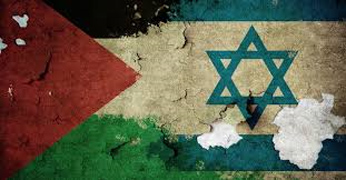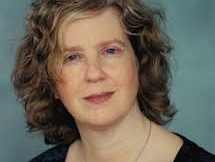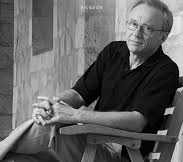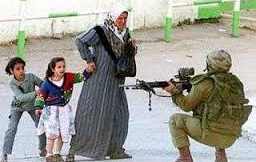Fear and Loathing in Israel/Palestine

Israel and Palestine have experienced conflict for decades and this conflict manifests to fear and anxiety of the other. The tension in the environment affects every aspect of life. Fear-based anxieties heighten due to the constant strains of warfare. The pressure continues through intergenerational fear of the other. An environment pressured will give way and only those best suited will survive. Through a comparative analysis between two Israeli writers, David Grossman, and Edeet Ravel these two writers show the pressures that induce fear and anxiety in Israel/Palestine. David Grossman, the author of Writing in the Dark: Essays on Literature and Politics, is a writer whose style is fluid and lyrical yet intense. He constructs his words to build upon language and engages many senses and emotions. Whereas the writer Edeet Ravel, the author of Ten Thousand Lovers, precisely deconstructs words to get to their root of origin she begins with fearful suspicions.
The Hebrew word for “suspicious” (hashud) buzzes through life in Israel like an insistent fly that won’t leave you alone. Suspicious objects and suspicious people who need to be taken aside and checked out are only part of the problem. A bigger problem is the military problem of suspicious movement or a suspicious figure when you’re in fighting mode. If the principle is (as the spokesman says) to shoot only when in danger, how deep does the suspicion of danger have to be before you shoot (Ravel 43)?

Fear
Humans have the instinctive ability to sense fear. Humans also instill fear; this type of fear is conditioned. The people of Israel/Palestine experience conditioned fear through their mothers, fathers, siblings, and other relatives who saw death and torture, and instill these messages with their warnings of fear. There is another type of fear called universal fear. “Scientists are focusing on ‘universal fears’ these fears are particular to people, regions, communities, or even cultures”(Layton). Universal fears describe the environment in Israel/Palestine; fighting for region, divisions within their communities, cultures, and religions. All the elements of ‘universal fear’ are met in Israel/Palestine. David Grossman has many passages containing ‘universal fear,’ such as:
The sense of besiegement and the fear of what is being plotted against us beyond the borders inevitably create an eagerness for internal consensus at any cost-a consensus that sometimes seems like the frightened convergence instinct of a threatened heard of cattle. But if the day comes when we do not have to define ourselves in terms of war and besiegement, if we allow ourselves to gradually let go of rigid, narrow-minded, and one-dimensional definitions of those who are “with us” and those who are “against us,” of those who are one of “us” and those who are foreigners (and as such, suspected as enemies), perhaps we will slowly learn to be more tolerant of diverse opinions and different voices in politics, art, gender roles, relations between men and women, and, not least, the tense and volatile relationship between Arabs and Jews within the State of Israel (Grossman 91).

Anxiety
The psychological and physiological effects of anxiety are also a part of life in Israel/Palestine. Anxiety is a chemical reaction in the body. Humans cause anxiety by overreacting to stimulus or perceiving events that may not come to fruition. Many people in Israel/Palestine cause anxiety by constantly thinking about the other. To graduate into a more complex definition of anxiety, there is existential anxiety. Theologian Paul Tillich who wrote, The Courage To Be analyzes anxiety throughout Western culture and some of his ideas correspond with the anxiety in Israel/Palestine. Paul Tillich proposes three categories of existential anxiety, ontological, moral, and spiritual. Tillich believes humans can express these three anxieties when the core foundation breaks. When leadership collapses, chaos reigns and belief system crumble. When new leadership over throws the intrinsic former power, and anxiety becomes rampant. Steven Kries, Phd. explains Tillich’s theory as two nightmares; “one is the anxiety of annihilating narrowness, with the impossibility of escape and the horror of being trapped. The other is the anxiety of annihilating openness, of infinite formless space into which one falls without a place to fall upon.” Both situations breed anxiety for both Israelis and Palestinians they are both facing the same angst of being isolated into the darkness of an anonymous void (Kreis 2012). Edeet Ravel’s passage is on point with Tillich’s existential anxiety theory.
Enemy in Hebrew is oyev and “the enemy” is ha-oyev. When I was a child in Israel we used the word, ha-oyev, all the time. We, who must fight the enemy. There, where the enemy sits. I’ve always found the effect chilling. The enemy is, first of all, faceless and nameless, a dark force hovering in the distance. Apart from that, it’s an eternal force, like “the night” or “the sky.” The enemy is always there, no matter what. It’s something you have to learn to live with. If the enemy had a name, you could ask why you had that particular enemy, and whether there was any way to turn that enemy into an ordinary neighbor, but “the enemy” is your enemy without rhyme or reason. It’s just a matter of bad luck (Ravel 49).

Environmental Pressures
Anxiety, fear and environmental pressures create a volatile environment. The pressures of power; politics and religion are very stressful for the inhabitants of Israel/Palestine. Mandates of new laws and encroachment of border lines changing, check points, refugee camps and relocation are taxing for the environment. The pressures of bombing, deconstruction, reconstruction, and neglect damage the environment. The people of the land are suffering from the pressures of occupation and retaliation. The people have to adapt to the changes of environmental pressures to survive. A more descriptive definition of environmental pressures and survival, is explained by Javier Bardem in his speech to Daniel Craig in the motion picture Skyfall (2012).
My grandmother had an island, nothing to boast of. You could walk around it in an hour, but still it was; it was a paradise for us. One summer, we went for a visit and discovered the place had been infested with rats. They’d come on a fishing boat and gorged themselves on coconut. So how do you get rats off an island? Hmm? My Grandmother showed me. We buried an oil drum and hinged the lid. Then we wired the coconut lid as bait, and the rats would come for the coconut, and…they would fall into the drum. And after a month, you have trapped all the rats, but what do you do then? Throw the drum into the ocean? Burn it? No. You just leave it, and they began to get hungry. And one by one…they start eating each other until there are only two left, the two survivors and then what? Do you kill them? No. You take them and release them into the trees, but now they don’t eat coconut anymore. Now, they only eat rat. You have changed their nature the two survivors (Skyfall 2012).
Javier Bardem as Silva in Skyfall and his opening speech about environmental pressures.
Israelis and Palestinians will continue to live to survive. “According to Irfan Jamil, bishop of Lahore, as the world constantly changes, the greatest fear is the fear of survival. The social, economical, spiritual, political and educational circumstances in life make survival difficult in regard to such pressures that can come out of it” (Jamil 2012). The teeming combination of fear; a real and tangible threat, coupled with anxiety; a psychologically induced state that can manifest into a physical aliment manufactures environmental pressures in Israel/Palestine. These pressures force the instinct for survival daily. Scientific, philosophical, and theological expressions examine fear, anxiety, and environmental pressures in this region. There is no simple solution to the fear, anxiety and environmental pressures experienced in Israel/Palestine. Without corrective action the outcome will be rats trapped in a barrel.
Works Cited
Grossman, David. Writing in The Dark: Essays on Literature and Politics. New York: Garrar, Straus and Giroux, 2008. ebook.
Jamil, Iran. “Fear Not. The Nation.” www. Nation.com.pk. 2012. Web. 2 Feb. 2014.
Kries, Steven. “The History Guide Lectures on Twentieth Century Europe Paul Tillich.” The Courage To Be (1952). 2012. Web 3 Mar. 2014.
Layton, Julia. “How Fear Works.” howstuffworks.com. 2005. Web 1 Mar. 2014.
Ravel, Edeet. Ten Thousand Lovers. New York: Harper Perennial, 2003. Print.
Skyfall. Dir. Sam Mendes. Perf. Daniel Craig, Javier Bardon, Naomie Harris.Eon Productions. 2012. Flim.
What do you think? Leave a comment.











An intense and moving piece about the tragedies of history found in people, history, land, emotions, and literature. I like how you weave in little strands of hope. Thanks for this thought-provoking essay.
Ben, I graciously thank you for your time and your words. I love it when someone provokes my thoughts a well. I have another piece in the works regarding opposition and contradictions between two esteemed poets one Israeli, Yehuda Amichai and the other Palestinian, Mahmoud Darwish. I hope you will have time to review this endeavor.
With Grace,
Venus
Ten Thousand Lovers is both a stunning love story and a good way to be introduced to the conflict there if you, like me, have a hard time getting a handle on what is going on.
Ilona,
I agree Ravel gave me an introspective into life in this region and how interconnection extends beyond borders and into the heart.
Thank you,
Venus
This is probably my current all-time favorite fiction book. I absolutely loved the story, the characters, the writing.
I have revered Mr. Grossman since first reading his magnum opus, “See Under: Love,” some twenty years ago. That said, his assertion that “the Palestinian majority … has already decided in favor of negotiation and against terrorism,” is the product of wishful thinking, rather than fact. Unlike the famously fractious Israeli body politic, in which virtually every conceivable part of the political spectrum is vocally represented, the overwhelming majority of Palestinians seem to be united behind a single objective – the elimination of Israel – and disagree only as to the means by which this objective should be accomplished.
In Israel, one regularly sees demonstrations denouncing militarism and arguing for peaceful accommodation with the other side. To my knowledge, no equivalent rally has ever occurred in any Palestinian community, or indeed, anywhere in the greater Arab world. Until a majority of Palestinians reconciles itself to the basic fact of Israel’s existence and work for peace as do like-minded Israelis, it is unrealistic to demand that Israel apply liberal means to defend itself against an implacably hostile and fundamentally illiberal foe.
Byars,
Thank you very much for your astute reflections on Grossman and Israel/Palestine. I would really like to know your view point on the works by the much-lamented Edward Said, regarding colonization in Palestine/Israel.
Most appreciative,
Venus
David Grossman is a wonderful writer ( My favourite is “The book of internal Grammar”).
Henke,
Thank you for your response and I will have to look into “The Book of Internal Grammar.”
Best,
Venus
I have watched newsnight interview with David Grossman with great interest in how he saw the present and future state of Israel. He appeared to confirm and articulate my ideas about where the State of Israel is heading, with sincere and deeply felt feelings. His dissapointment was summed up when he said ‘ I came to live in Israel so that i can call it ‘home’ which I had never had’.
Joesfa,
David Grossman is a fabulous writer and I agree his words are filled with a deep passion that can course through the body and make you feel ‘deeply.’ Thank you for expressing your experience with Grossman’s work.
With Grace,
Venus
I saw an interview with Grossman on the BBC that was rebroadcast on BBC America, in which he explains his positions carefully and sympathetically. Great man.
Rocio,
Thanks for this information I will have to make a point to search for this interview.
Venus
Thank you for a thoughtful piece. It seem that Israel has the greater burden in moving to a possible peace. At the least, it is doubtful Israel can suppress the Palestinians in Gaza indefinitely in the face of growing international isolation and the increasing personal and financial toll.
Prince,
This has been going on for too long; “others” are benefitting and vested in some manner. However, the loss of life and land is devastating and taxing on all souls.
Peace to you,
Venus
I believe that there is a compromise that both Israel and the Palestinians can live with and would accept.
Lara,
It sounds like a proposal of a dutiful marriage between two nations to keep the peace within the land.
David Grossman is right in a statement where he stated that the vicious circle of violence must end and that Israel must be imaginative as well as willing to take painful choices to achieve peace.
Raf Vu,
I see where you are going with this thought.
Thank you.
A thoughtful piece.
Sang,
I gracefully thank you for your sentiment.
Venus
Both Israelis and Palestinians have to overcome their hatred, feelings of vengence and futile bloody confrontations which lead just to both self- destruction and dehumanisation of each other.
Tobie, thank you for your reflections on this piece.
We all can see that there is no “winning” possible for either side. In fact the more successful one faction of this equation becomes the more it feeds the furies that drive the others. When so many lives are at stake and continuation of the violence only perpetuates the status quo, one would think that all parties would be committed to finding a solution. If not then something else is driving this conflict.
It seems that the leadership and good segment of the citizens of each population are addicted to the existential crisis that war creates. They find purpose in conflict, possibly only an escape from daily boredom but enough to distract people from feeling that their lives are a pointless, painful waste. This is the lazy evil that underlies most violence, from domestic to international. It’s the same fever that percolates on a hot summer day boiling over into pointless violence. Once the violence starts it is self-perpetuating. As conditions deteriorate the existential irritation becomes more and more inflamed and violence becomes more and more appealing.
The leadership of each faction tries to convince everyone of the validity of their call to arms and many of us are drawn in. The only way to stop this vicious cycle is for the general population to reject their leaders completely. If we can’t topple the war mongers then we must make it clear that they are only fighting for themselves and their fear of being meaningless.
Reez,
Your response is very compelling thank you for your generous insight. In your comment, “If not then something else is driving this conflict.” This could be external forces that are profiting financially from this conflict as well as feeding a self-serving source.
Your second paragraph ruminates with the magma of Grossman. Your last line of “…fear of being meaningless.” is a pretty good summation of the tension, conflict and loss in this region.
Thank you for echoing your vibrations on this matter.
With Grace
Venus
Ten Thousand Lovers is a fascinating look at Isreal tensions in the 70s and compelling characters. not to mention the interesting explanations of Hebrew and Arabic words and how they are weaved into the story.
Yes, Neville, Ravel has a strong way of deconstructing languages to get at the root of the matter.
Thanks
Venus
I am a big fan of Ravel’s–her children’s fiction and her work for grown ups!
I will have to look into the children’s fiction, thank you.
Beautiful work. Left me with much to think about; thank you for writing!
Helen,
I am honored by your sentiments.
With Grace
Venus
Ten Thousand Lovers sounds like an amazing book. This article was very informative and moving. I loved the quotes you used – very well written overall.
You need leaders on both sides that are commited to a two state solution.
That is not going to happen.
Hello Les, I like your comment if only it were that simple. There are third parties with self-serving agendas which conitinue this oppression; in my opinion. I am working on another think piece regarding poets who tackle this dilemina hope you stop by and take a look when it publishes.
Happy New Year
~Venus
Disgust could be an element too.